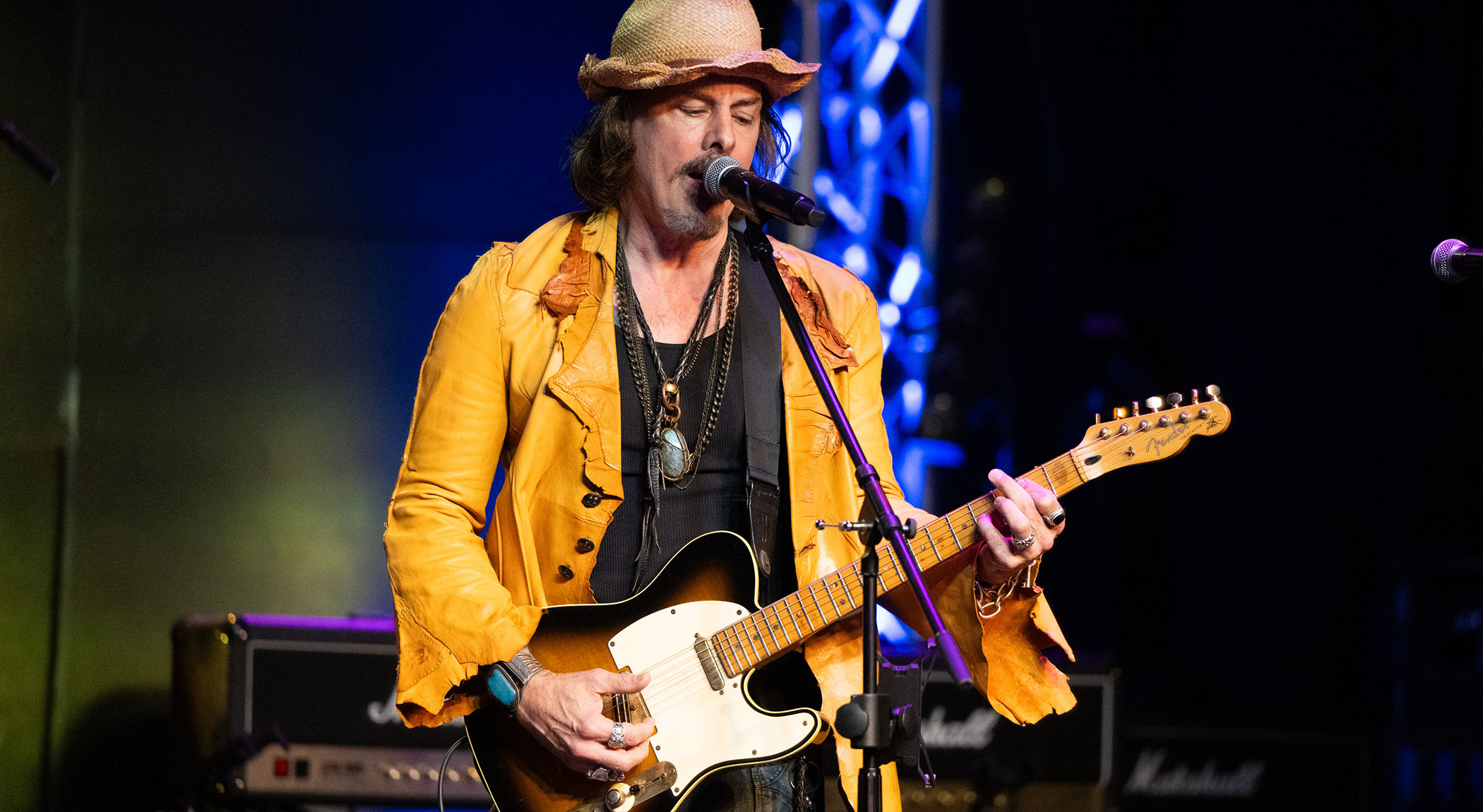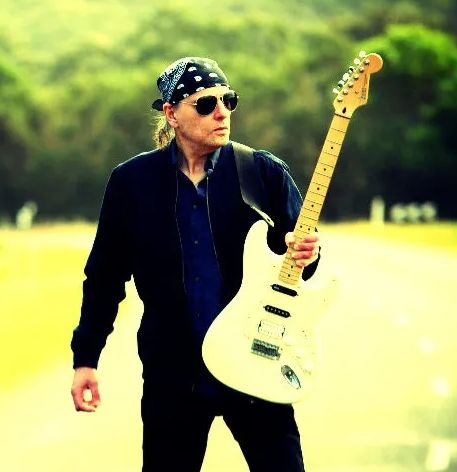“I needed to have a bucket on the side of the stage because I was that sick”: Richie Kotzen on his worst-ever show, that time wildfires came for his guitar collection, and upsetting his mom by getting Purple Haze wrong
Kotzen checks in to talk first guitars, first songs, and to give his younger self a little friendly advice. Plus, why didn't he take any guitars as the fire got close?

Richie Kotzen has a new album out. It's titled Nomad. Go check it out. It finds the Winery Dogs guitarist in fine form. But right now he is not here to talk about any of that.
No, we're taking Kotzen back to the beginning, talking about the electric guitar he learned on, and having a quick-fire profile in which he talks firsts, favorites, and resolutions on how he can get better.
What was your first guitar?
“Something from a yard sale when I was seven. I took it to my guitar teacher on the first day of my lessons, but he said, ‘I can’t teach you on this. You need to get a proper instrument.’ So I went out and got a Gibson Marauder and learned on that – so that was my first real guitar.”
What was the first song you learned to play?
“Purple Haze. I learned it in the open position, though, and it didn’t sound like Purple Haze. I remember getting into an argument with my mother when I told her, ‘This is Purple Haze,’ and she said, ‘No, it’s not. I saw Jimi Hendrix live, and Purple Haze didn’t sound anything like that!’ So I got very upset by what she said, as technically I was playing Purple Haze, but because it was in the open position, it didn’t sound like it to someone who wasn’t a musician.”
What was your first gig like?
Get The Pick Newsletter
All the latest guitar news, interviews, lessons, reviews, deals and more, direct to your inbox!
“The first time I got in front of people was at a school assembly, and I played Jingle Bell Rock. It was within that first year of learning guitar. I was very nervous as I still didn’t know how to tune my guitar, so I was in a panic. Luckily, there was an older kid there that played in the jazz ensemble, and who was very good, so he tuned it for me so that I could go out and play the song.”
Ever had an embarrassing moment on stage?
“I was playing in a full-time bar band when I was a teenager, and we were doing this circuit of Pennsylvania, New Jersey and Delaware. And as the guys in the group were older, they were making a living from it – we played four nights a week.
“One night in Delaware, I remember being very sick from some kind of food poisoning. I needed to have a bucket on the side of the stage because I was that sick. It was my worst time ever on stage, and I can still remember it.”
What’s your favorite piece of gear?
“My signature Fender Telecaster, the initial version of which came into production in 1996. It is my main guitar, and one I’ve been playing for a good 14 years. It came off the rack, but I sanded the finish off and added this little tuning device, an electronic LED disc-tuner – made by a company called N-Tune – that’s built into the guitar.
“It plays and feels great, too, and because it is so played-in – and I’m the only person that has ever played it – it feels like it’s part of me.”
The building is burning down; what one guitar from your collection would you save?
“I’ve experienced this first-hand. We lived through the largest natural disaster fire in Southern California history back in 2018. The Woolsey Fire came through my canyon, and we had to evacuate. I didn’t take any guitars!
“My wife was luckily out of town, so I evacuated and took my dog, who’s now passed away, plus a bunch of hard drives that had all my music ideas, a copy of my insurance policy and my wife’s five-string Music Man bass.”
When was the last time you practiced and what did you play?
The first time I got in front of people was at a school assembly, and I played Jingle Bell Rock. It was within that first year of learning guitar
“I don’t practice like I used to when I was a teenager. These days, the guitar is just a tool for writing music and performing it. But what I will do is, when I write something, I’ll record it. This way, months later when I have to go back and figure out what I did, I’ll learn to sing it and play it at the same time. So that becomes my practice.”
What aspect of the guitar would you like to be better at?
“I think with the guitar, or any instrument, you’re always growing. If you ever feel like you’ve gotten as good as you’re ever going to get, that’s not a good thing. My attitude is that it’s a constantly evolving thing.
“What I love about the guitar is the ability to be expressive on it. I’m one of those guitar players that doesn’t work out solos. I don’t know what I’m going to play when I get on stage. So there’s a bit of excitement in that for me as I love reacting as a musician.”
What advice would you give your younger self if you could?
“Keep at it, follow my instincts, believe in myself and be open-minded. I always made sure I played with guys who knew a little bit more than me in other styles. My guitar playing is kind of what it is.
“I’m not a guy who sits around and thinks about guitar playing or practicing and technique. I think about the stuff that’s in my head; the melodies and lyrics and song ideas, and getting it out of the speakers.
“I function in that way. I don’t function like a guitar player. I have to rid myself of this noise in my head, which is the creativity. So the guitar is just a vehicle for me to use.”
- Nomad is out now via BMG.
Joe Matera is an Australian guitarist and music journalist who has spent the past two decades interviewing a who's who of the rock and metal world and written for Guitar World, Total Guitar, Rolling Stone, Goldmine, Sound On Sound, Classic Rock, Metal Hammer and many others. He is also a recording and performing musician and solo artist who has toured Europe on a regular basis and released several well-received albums including instrumental guitar rock outings through various European labels. Roxy Music's Phil Manzanera has called him, "... a great guitarist who knows what an electric guitar should sound like and plays a fluid pleasing style of rock." He's the author of Backstage Pass: The Grit and the Glamour.







![[from left] George Harrison with his Gretsch Country Gentleman, Norman Harris of Norman's Rare Guitars holds a gold-top Les Paul, John Fogerty with his legendary 1969 Rickenbacker](https://cdn.mos.cms.futurecdn.net/TuH3nuhn9etqjdn5sy4ntW.jpg)







